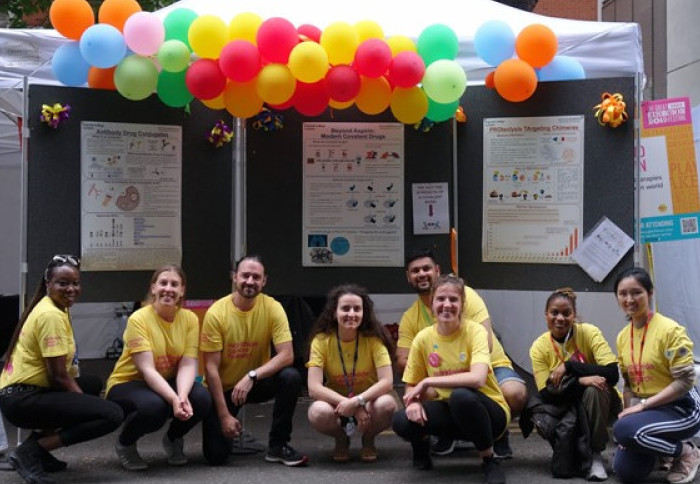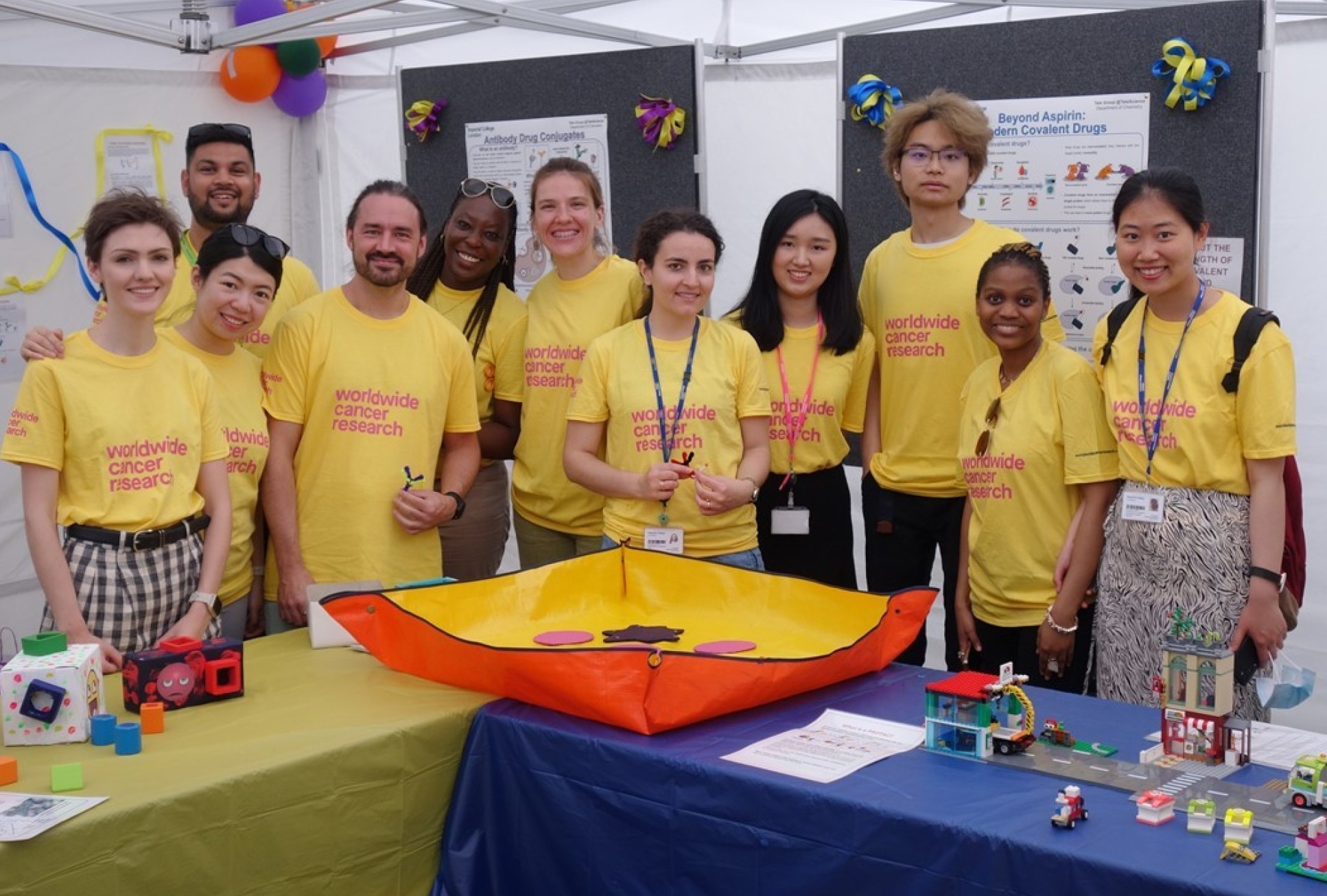Tate group at the Great Exhibition Road Festival 2022

Tate group members were involved in this year's Great Exhibition Road Festival where they showcased the cutting-edge research undertaken in the group
On Saturday 18th and Sunday 19th June, the Tate group welcomed members of the public to the Great Exhibition Road Festival (GERF) on Imperial College Road. The stand was called “Beyond Aspirin: Innovative therapies in the modern world.” The organisation of this stand was led by Dr Elena De Vita, Dr Janine Gray, Dr Patrycja Michalska, and Dr Ravi Singh. The team expanded rapidly with fantastic contributions and enthusiasm from other group members: Dr Edward Bartlett, Dr Fangyuan Cao, Dr Folake Orafidiya, Lame Senatla, Shradda Vadodaria, Dr Josephine Walton, Haozhe Xiao, Qisi Zhang, Dr Tianze Zhang.
At the stand, people could learn about some of the exciting research conducted in our group. This was achieved using posters and interactive models to demonstrate how covalent drugs, antibody-drug conjugates, and PROTACs (PROteolysis TArgeting Chimeras) work. Also, people could hear more about Worldwide Cancer Research, one of the charity organisations that fund some of the most cutting-edge research that we are conducting to understand and target cancer.
“The festival has been a fantastic experience! I particularly loved to see the visitors being fascinated by some of the great advancements made by science that can already benefit patients’ lives in cancer therapy, such as antibody-drug conjugates,” said Elena. Commenting on the experience, Elena said: “I feel like we have been able to reach out to people from different backgrounds and ages, and strengthen their confidence in scientific research.”
"It was wonderful to discuss science during this event; the team did a great job to engage the public and captivate interests. A huge thanks to everyone!" commented Ravi.

This was led by Imperial College, and set in the stunning South Kensington campus, in collaboration with neighboring museums and centres of innovation. This included the Natural History Museum, the Science Museum and the Royal Albert Hall as contributors where the festival showcased the world-leading research happening at Imperial College in addition to the vibrant art, design and science district of the neighbourhood in an accessible format.
The success of the first GERF in 2019 led to the festival being established as an annual event. Following the cancellation of 2020, and the hybrid event in 2021 caused by the worldwide pandemic, scientists from The College and neighbourhood gathered this year to showcase exciting science in-person. Hundreds of Imperial College staff and students took part in the event, with free stands exploring a wide number of topics. These ranged from the possibility of life on Mars to the future of fashion, the music of the brain to the operating theatres of the future. Some of the family-friendly workshops included how to make a bee-friendly seedball, how to create your own mini earthquake, or how to extract a strawberry’s DNA.
Almost 40,000 visitors attended this year's succesful event. Stay tuned for GERF 2023 next year!
Article text (excluding photos or graphics) © Imperial College London.
Photos and graphics subject to third party copyright used with permission or © Imperial College London.
Reporter
Dr Ravi Singh
Department of Chemistry